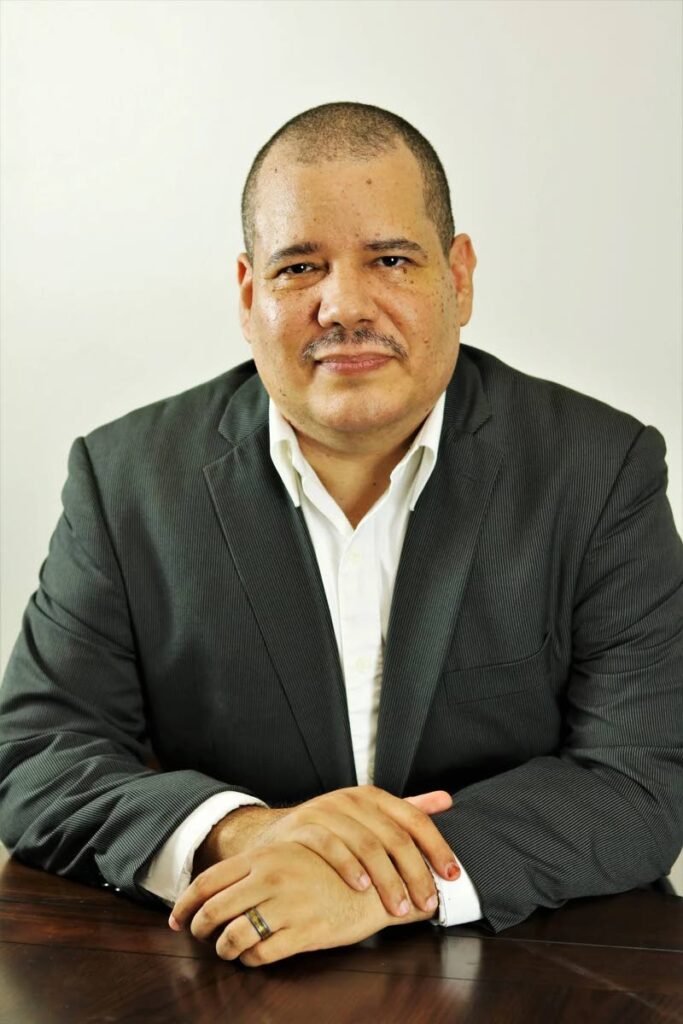Counselling psychologist: Men need to explore emotional side

Counselling psychologist Sule Joseph says some people do not believe men need recognition, believing we live in a patriarchal society, and men were already leaders and prominent figures of the world.
However, he said recognising days celebrating men, such as International Men’s Day on November 19 of every year, spoke to the emotional self, especially in this time when people expect men to be more in touch with their feelings.
International Men’s Day, which was inaugurated in 1999 by TT’s Dr Jerome Teelucksingh, is a more recent addition to the list of international days of recognition.
According to the Awareness Days website, the day “celebrates the positive contributions and achievements of men while addressing important issues affecting men's health, well-being, and gender equality.”
Joseph stressed that international days were important because they were days of recognition and recognition was about emotions. So when people did not take the day seriously, they were saying men did not need that emotional support, perpetuating the misconception that men were divorced from their emotional side.
“We have recognised there are other groups that needed support and recognition, and we have supported them and they continue to grow. But I think it has become a situation that, not deliberately, in trying to support other groups, we have indirectly moved away from supporting men and manhood.
“The psychology of the population is that men are big and strong, and they don’t need that which, indirectly, feeds into the same toxic masculinity concept, which I don’t agree with, of what a man is supposed to be – someone who is strong, who does not have feelings or need emotional support or recognition from others.”
He said if society was trying to get men to accept and care about their emotional side, society should acknowledge and recognise the contribution men made to it.
He gave the example of Mother’s Day vs Fathers’ Day and the effort people put into celebrating. That effort, or lack thereof, suggested men would do what they were supposed to without recognition because that was what men were supposed to do.
He said no one asked if men were afraid of rats or cockroaches but they were expected to be the ones to kill the creatures if they got into the home.
He believed it was necessary to remove gender associations with emotions. He said emotions did not belong only to women and everyone felt good to be recognised. He added that some men were too emotional and, because they were never taught to deal with their emotions, they masked it with anger.
“I think not recognising the emotional side of men does gender relations a great disservice and sets us back several years.”
Joseph noted that, internationally, men were twice as likely to simply act on suicide ideation and less likely than women to seek help. As a result he, personally, had not seen many men in his practice. However, he had seen a few boys with suicide ideation over the years and their motivation was the feeling they could not meet the expectations of society.
He said, generally, men were expected to be successful and to provide for their families. They felt pressure to look, dress and act in certain ways. And with the concept of masculinity becoming more fluid, some young men find it difficult to navigate.
“For boys now, even more so than in the past, when you have a natural desire or drive to be competitive, or to be ‘alpha’ and functioning, and people tell you that level of functioning is ‘toxic,’ then you might deem who you are to be problematic.
“I could see where that kind of conflict could cause depressive issues, especially where you have men now questioning if functioning in a manner which they thought was manly is now unhealthy.”
He said society was asking a lot more of men with less recognition of their efforts and it was stressful both emotionally and cognitively.
Counselling psychologist Nicholas Voisin agreed modern expectations of masculinity could be confusing.
He said boys were not encouraged to talk about their feelings. What they needed was the support of boys their age as well as emotionally mature men.
He said, as was naturally done between woman and girls, boys needed to describe their feelings to adult males who would listen and give advice. They needed to learn more words to express what they were feeling so they could identify the emotion and figure out what to do with it.

He added that boys needed mature, healthy men to emulate, even if that man was not constantly in their lives. It could be a teacher, coach, priest, or any other emotionally healthy man.
He said the idea of “toxic” personality or attributes could be applied to anything, even behaviours that could be considered innately positive.
“It’s the concept of taking traits to an extreme where it not healthy to those who are using it and to those around you. So toxic masculinity is a version of masculinity that does not support or encourage the well-being or good mental health of the men who employ it.
“It’s a hard and fast thing with very rigid rules about what men can and cannot do, and those rules fly in the face of what men actually need. And it becomes quite unhealthy and destructive, not just to the man but to the people the man engages with.”
While there were exceptions to every rule, in general, Voisin gave some characteristics of healthy masculinity.
He said as the head of a family, men should not be dictatorial but to listen to and consider the feelings and ideas of others. He said they should witness without judgement and be encouraging rather than demoralising or dismissive; create a safe space for their partner and children to be themselves; guide, support and encourage people; and be comfortable with being vulnerable with their partner and children so they could see they have feelings beyond anger.
He said those types of traits were learned. A man could not just see what they do not want to be and not be it. They still needed an example of what to do, which was why boys, and men, need a mature, emotionally healthy man as a role model.
He said women nowadays say they want men to be more in touch with their emotions but, when a man expressed those emotions, often the woman’s response was to either berate him or tell him how she felt, making it about her and he then had to deal with her feelings as well. And that had to stop.
Voisin said depression was the most common factor in suicide ideation in men, caused by feelings of helplessness, tiredness, or futility owing to a break-up of a relationship, financial issues, the death of a loved one and other emotional issues.
“Then there is the ubiquitous depression without any specific input because men generally do not take care of their mental health. Even within the structures of society, men do not have the same kind of opportunities to engage resources for their mental health that women do.”
According to a WHO 2021 report, internationally, men were twice as likely to die by suicide at 12.6 per 100,000 men versus 5.4 per 100,000 women.
In TT, 561 deaths by suicide were recorded for January 2018-March 2023.


Comments
"Counselling psychologist: Men need to explore emotional side"